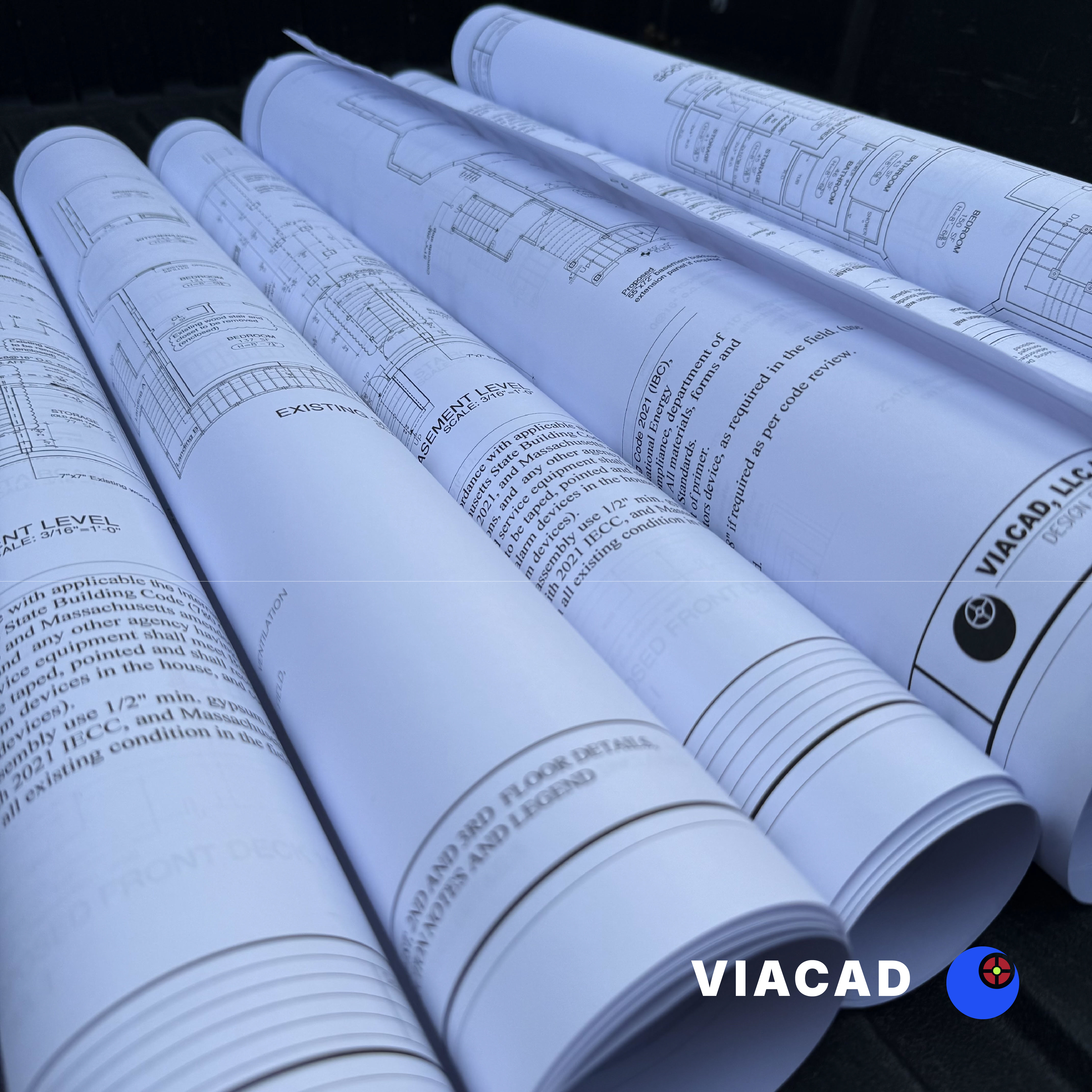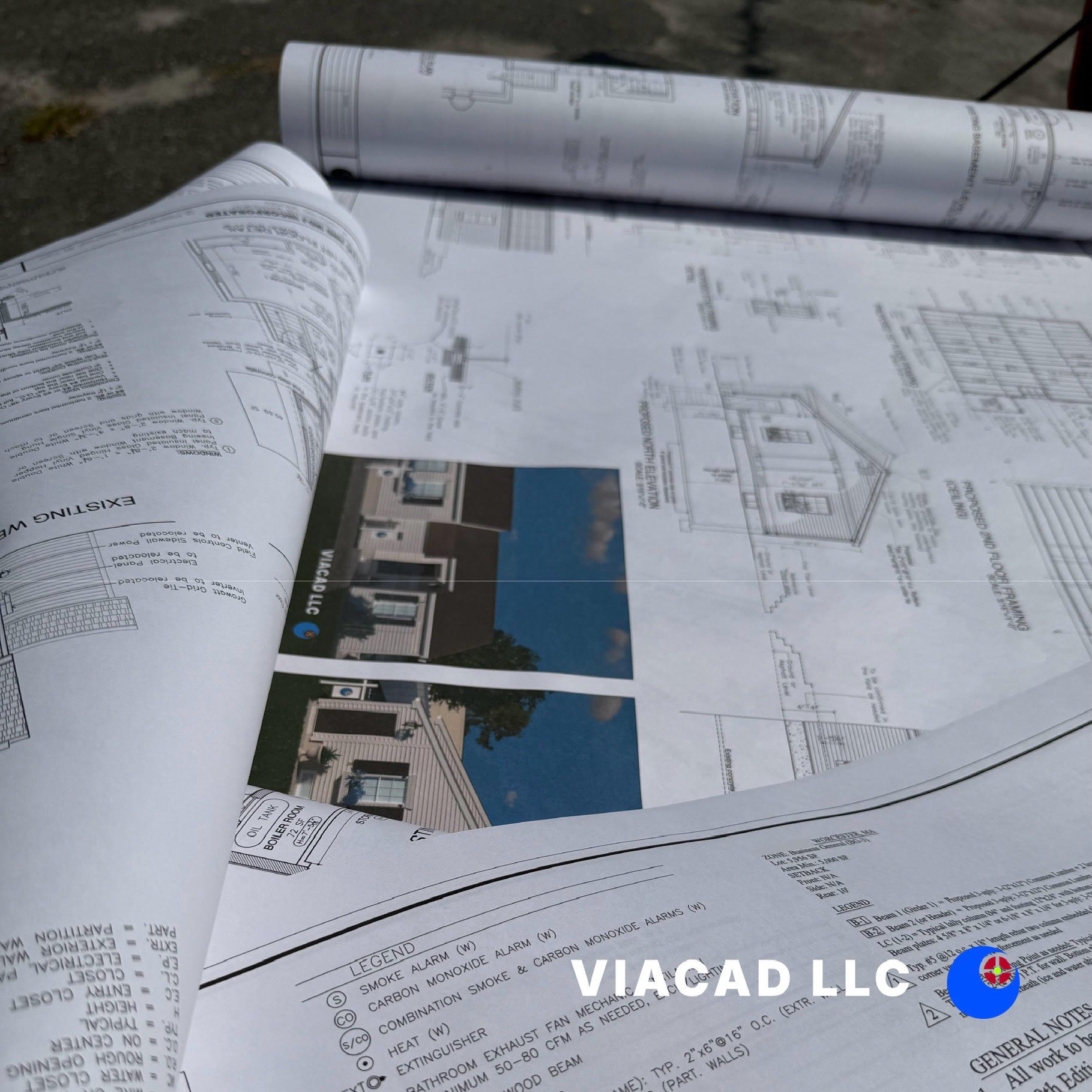
Accessory dwelling units (ADUs) have become an increasingly popular way for Massachusetts homeowners to expand their living space, generate rental income, and maximize the use of their residential properties. An accessory dwelling unit ADU is a versatile, independent living space that can increase property value, offer flexible housing solutions, and provide benefits such as privacy and customization for homeowners and tenants alike.
Whether you are considering detached ADUs, in-law suites, or granny flats, understanding ADU plans specific to Massachusetts is essential for a successful project. In this article, we will explore the various options for ADU plans, including different layouts, customization choices, pre approved ADU plans, custom plans, zoning laws, permitting processes, and cost considerations as they pertain to Massachusetts. This guide will help you navigate the complexities of ADU construction in Massachusetts and create a functional, code-compliant accessory dwelling unit that meets your specific needs.
ADU plans refer to the detailed designs and blueprints that outline the construction and layout of an accessory dwelling unit. These plans are crucial for Massachusetts homeowners seeking to add additional living space to their property, whether for family members, rental purposes, or personal use. One of the main advantages of using pre approved ADU plans is that they simplify the permitting process, reduce design fees, and help lower overall project costs.
It’s important to understand that quality ADU plans do more than just secure permits. They are the foundation for accurate bids from contractors, helping homeowners avoid surprises and costly change orders during construction. At VIACAD, LLC., we emphasize the importance of obtaining a well-crafted set of plans before reaching out to contractors. This approach empowers homeowners to seek multiple bids based on the same detailed plans, ensuring competitive pricing and greater control over the contractor selection process. Too often, homeowners contact contractors first, who then reach out to building designers like us, which can limit options and inflate costs.
Accessory dwelling units in Massachusetts come in various forms, including detached ADUs, attached units, and garage conversions. Each type offers different benefits depending on the available land, property lines, and the homeowner’s goals. ADUs provide additional living space that is separate from the main home, allowing homeowners to expand their living areas without modifying the primary residence. For example, in-law suites and granny flats provide comfortable living areas for family members, while detached ADUs can serve as separate rental units to generate additional income.
When planning an ADU project in Massachusetts, homeowners often face the choice between pre approved plans and custom plans. Pre approved ADU plans are designs that have already been reviewed and approved by local Massachusetts jurisdictions, ensuring they meet all state and local code requirements and zoning laws. These plans typically come with a set square footage, bedroom count, bathroom layout, and site plan, making them a convenient and cost-effective option for many applicants.
Custom plans, by contrast, offer the flexibility to tailor the accessory dwelling unit to specific needs and preferences. At VIACAD, LLC., we specialize in creating custom residential design plans that are uniquely tailored to each client’s goals, property conditions, and the nuances of local zoning and building codes. With custom plans, you can customize ADU floor plans and exteriors to match your individual preferences and ensure the design complements your existing home. Our design process incorporates your personal ideas and preferences, allowing for collaborative planning and a personalized ADU that truly meets your needs. Our experience across Worcester and Central Massachusetts allows us to develop building plans that maximize space and functionality while smoothing the permitting process. While custom plans may involve higher design fees and longer review times, they provide homeowners the opportunity to fully realize their vision with a design that fits their property perfectly.
Choosing between pre approved ADU plans and custom plans depends on your budget, timeline, and the level of customization desired. Exploring both options can help you determine the best approach for your Massachusetts ADU project.
One of the most critical aspects of ADU construction in Massachusetts is understanding and complying with local zoning laws and code requirements. Massachusetts has enacted legislation to encourage ADU development, including state laws that require municipalities to allow at least one ADU by right on single-family lots, subject to certain conditions.
Local zoning laws govern the size, placement, and features of accessory dwelling units on residential properties. For example, zoning laws may limit the maximum square footage, dictate setbacks from property lines, or restrict the number of bedrooms allowed in an ADU.
The permitting process in Massachusetts involves submitting your permit-ready ADU floor plans, site plan, and other documentation to the appropriate local jurisdictions for review and approval. When you submit construction plans that are compliant with local building codes, you can be confident in a smoother permitting process. Utilizing pre approved ADU plans can significantly streamline this process, as these designs have already been vetted for code compliance.
At VIACAD, LLC., we understand that the permitting process can be complex and time-consuming. Our team works closely with homeowners, contractors, and local authorities to prepare clear, code-compliant plans that accelerate approvals and reduce delays. By addressing local zoning laws and building codes upfront, we help protect your investment and keep your project on track.
Understanding permit fees and the timeline for approval is essential for effective planning. Engaging with local planning departments early in the process can help clarify requirements and reduce delays.

Creating a functional and comfortable living space within an accessory dwelling unit requires careful consideration of the floor plan, bedroom count, bathroom placement, and storage solutions. ADU floor plans in Massachusetts should maximize space efficiency while providing all necessary amenities to support independent living.
For example, including a well-designed kitchen, ample storage, and a private bathroom enhances the livability of the unit. In-law suites and granny flats often emphasize accessibility and comfort for family members, while rental units may focus on privacy and market appeal.
Incorporating flexible design features, such as multi-purpose rooms or convertible furniture, can further optimize the living area. Additionally, considering utility connections and placement relative to the main house ensures seamless integration and cost-effective construction.
At VIACAD, LLC., every set of plans we produce is uniquely tailored to your specific property and goals. We don’t believe in one-size-fits-all solutions. Instead, we take the time to understand the layout of your lot, existing structures, and how local regulations impact what can be built. This careful attention to detail results in designs that make construction simpler, smoother, and more predictable.
The cost of ADU construction in Massachusetts varies widely depending on factors such as size, design complexity, location, and whether you choose pre approved ADU plans or custom plans. Common expenses include design fees, permit fees, utility connections, materials, and labor.
One effective strategy for reducing costs is to select pre approved ADU plans, which minimize design and review expenses. Additionally, choosing a smaller square footage or simplifying the floor plan can lower construction costs. Being mindful of local code requirements and zoning laws can prevent costly modifications during the permitting process.
Budgeting for the project should also account for potential additional expenses, such as landscaping, site preparation, and impact fees. Consulting with experienced Massachusetts ADU building designers and contractors can provide valuable insights into cost-saving opportunities.
At VIACAD, LLC., our design and construction experience allows us to create plans that help avoid costly change orders and delays during construction. Quality plans are essential not only for permits but also for enabling contractors to provide accurate bids and build correctly from the start. By working with us early in your project, you gain a partner who helps protect your investment and streamlines the entire building process.
Accessory dwelling units offer numerous benefits for Massachusetts homeowners looking to expand their residential properties. Beyond adding valuable living space, ADUs can increase property value, provide rental income, and accommodate extended family members comfortably.
In Massachusetts, where housing affordability and availability are ongoing concerns, ADUs serve as an effective solution to increase housing options without significantly altering neighborhood character. State and local programs supporting ADU construction often provide resources and incentives to applicants, making the process more accessible.
By carefully planning your Massachusetts ADU project, considering pre approved ADU plans, and understanding the permitting process, you can create a functional, attractive unit that meets your needs and enhances your property.
Navigating the world of ADU plans and accessory dwelling unit construction in Massachusetts requires a solid understanding of design options, zoning laws, permitting processes, and cost factors. Whether you choose pre approved ADU plans or custom designs, focusing on maximizing space, ensuring code compliance, and reducing costs will lead to a successful project. Accessory dwelling units offer a flexible and practical way to expand your living space, generate rental income, and accommodate family members, making them a valuable addition to any Massachusetts residential property. Start exploring your ADU options today to take advantage of the many benefits these versatile units provide.


Currently accepting projects in Massachusetts.